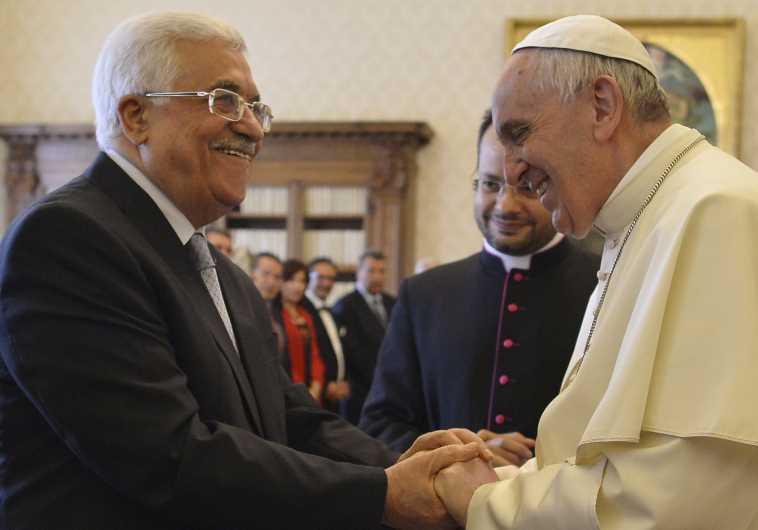What is the pope’s agenda?
The Vatican’s flag is likely to go up just as the pope descends onto the nations’ New York stage to say whatever it is he plans to pontificate.
 Pope Francis (R) shakes hands with Palestinian Authority chief Mahmoud Abbas in the Vatican
Pope Francis (R) shakes hands with Palestinian Authority chief Mahmoud Abbas in the Vatican